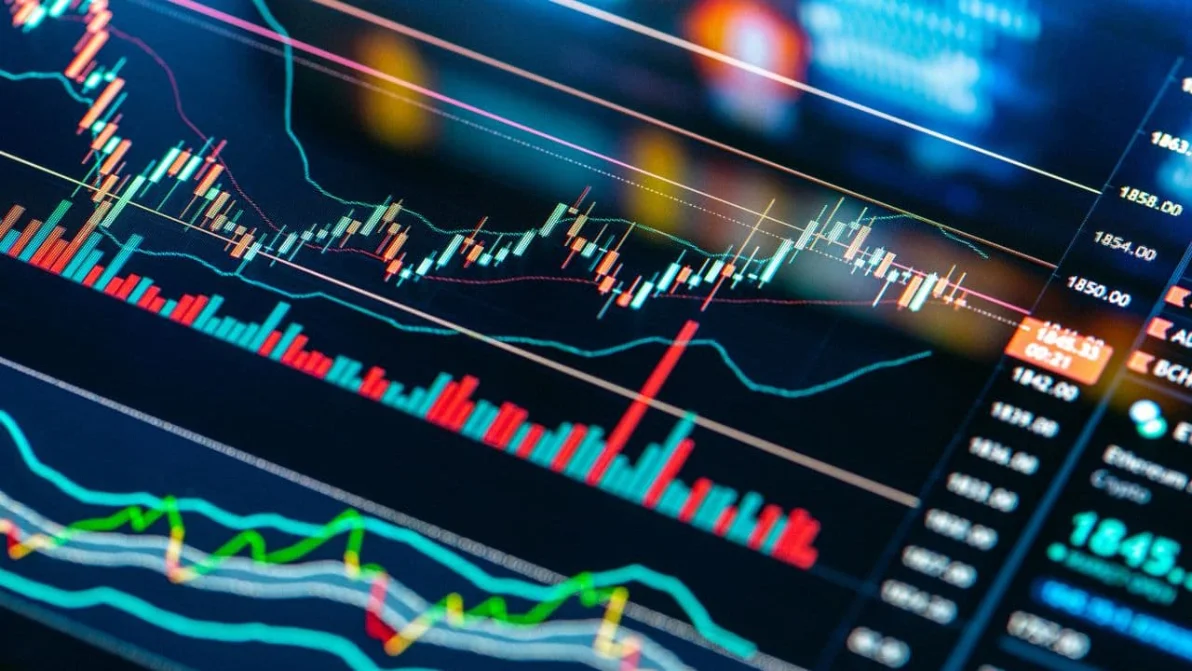Stock markets in Asia had a tough day on Monday. The only bright spot was Tokyo, which managed to go up. This comes after a rough week on Wall Street, which saw some significant losses.
There are a few reasons for this. First, there’s a lot of concern about China’s property market. Also, in the U.S., there’s talk of a government shutdown, and American autoworkers are on strike. All of these things are making investors nervous.
One big issue is a company called China Evergrande. They’re in trouble because they can’t borrow more money right now, and they owe over $300 billion. This is because one of their partner companies is being investigated.
In terms of specific markets, Hong Kong’s Hang Seng went down by 1.5%, and the Shanghai Composite index dropped by 0.5%. However, Japan’s Nikkei 225 managed to go up by 0.9%.
Seoul’s Kospi lost 0.5%, and Australia’s S&P/ASX 200 went down by 0.1%.
On Friday, in the U.S., the S&P 500 fell by 0.2%, the Dow Jones Industrial Average was down by 0.3%, and the Nasdaq composite dropped by 0.1%. Wall Street is realizing that interest rates are likely to stay high for a while, and that’s causing more worries for investors
Wall Street is feeling the heat because interest rates in the bond market have gone up to levels we haven’t seen in over a decade. These rates have been going higher for a few months, and this week, they jumped even more. The reason for this is that the Federal Reserve, the central bank in the U.S., hinted that it might not lower its main interest rate as much in 2024 as investors had hoped. The interest rate the Federal Reserve controls is now at its highest since 2001, and this is causing some problems because it’s making it harder for investments to grow, especially with the high inflation we’re experiencing.
When interest rates are high, it’s like putting the brakes on the economy. This is done on purpose to control inflation, but it can also hurt the prices of investments and take a while to show its full impact. Sometimes, it can even lead to problems in unexpected places. Earlier this year, we saw some big U.S. banks run into trouble because of these high rates.
There’s more to worry about too. The U.S. government might shut down at the end of the month if they can’t agree on spending, which would disrupt many services, affect workers, and create political chaos. This is happening because some Republicans in the House want to make deep cuts to government spending and are clashing with Democrats over it.
On top of all that, American auto workers are on strike against major car companies. Last week, they expanded their strike to 38 General Motors and Stellantis parts-distribution centers in 20 states. They want better pay and benefits, and this strike could push prices higher if it leads to shortages of cars and car parts, which would contribute to inflation
On Friday, there was a slight improvement in the financial markets, which helped the S&P 500 recover a bit after it had dropped 1.6% the day before, marking its worst performance since March. The yield on the 10-year Treasury, which is like the interest rate on government bonds, went down a bit from 4.50% to 4.44%. However, it’s still quite high, not seen since 2007.
Another important number is the two-year Treasury yield, which reflects what investors expect from the Federal Reserve (the U.S. central bank). It also decreased slightly from 5.15% to 5.10%.
When bonds offer higher interest rates, it makes investors less interested in buying stocks, especially the ones that seem expensive or require waiting a long time for significant growth.
This has been particularly tough for big tech companies. For example, Nvidia had a tough week, but it managed to recover a bit on Friday. The Nasdaq composite, which includes many tech and high-growth stocks, had its worst week since March, dropping by 3.6%.
Some good news came for tech-related companies when U.K. regulators gave initial approval for Microsoft’s massive $69 billion deal to buy video game maker Activision Blizzard. This could be one of the biggest tech deals ever, and as a result, Activision Blizzard’s shares went up by 1.7%. However, Microsoft’s stock fell by 0.8%.
In other news, the price of U.S. crude oil went up slightly to $90.32 per barrel, and Brent crude, used for international trading, increased to $92.25 per barrel.
Lastly, in currency markets, the U.S. dollar strengthened against the Japanese yen, going from 148.28 yen to 148.37 yen. The euro also saw a slight rise, going from $1.0654 to $1.06.





